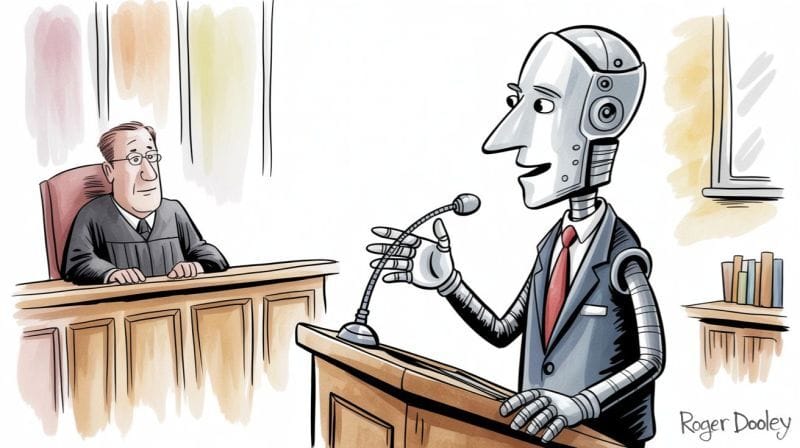Could AI replace your most expensive employee? Here's an experiment that may shock you.
Picture this: A laptop sitting on the Supreme Court podium, delivering oral arguments with more precision than most human lawyers. Sound like science fiction?
Adam Unikowsky, a Harvard JD and MIT engineer, now a DC attorney, just proved it's possible—today.
In his recent Substack article "Automating oral argument," Unikowsky conducted a remarkable experiment. He fed court briefs and precedents into Claude 4.0 Opus, gave it basic tips on Supreme Court advocacy, then compared its performance to his own actual oral argument in Williams v. Reed.
The results? The AI delivered what Unikowsky himself called an "outstanding oral argument"—clear, coherent, directly responsive, and even cleverly pivoting hostile questions to support its case. No stumbling. No getting tongue-tied. Perfect recall of the record.
Here's where it gets interesting from a business perspective: The traditional professional services model assumes that high-stakes, high-judgment tasks require expensive human experts. But what if that assumption is backwards?
Consider this:
- AI thinks faster (crucial when judges give you 2-3 seconds to respond)
- Never gets nervous or flustered
- Has perfect recall of case details
- Can generate sophisticated legal arguments instantly
- Won't object to lawyer jokes. Might even write them for you.
The most surprising finding? When asked an absurdly difficult hypothetical about how the Twenty-First Amendment (which ended Prohibition) could support a civil rights case, the AI gave three coherent arguments that Unikowsky admits he couldn't have produced even with six hours to prepare.
Remember the lawyer who got sanctioned for filing a brief packed with AI-hallucinated cases? We've apparently come a long way in a short time.
This isn't about replacing all lawyers. It's about recognizing that our assumptions about which tasks require human expertise might be completely wrong.
If AI can excel at something as nuanced as Supreme Court oral argument, where quick thinking, persuasion, and adaptability are critical, what other "irreplaceable" professional roles will we soon be questioning? Or, will get far more and much better work done by teaming up with AI?
The companies that will win in the next decade are those willing to challenge sacred cows about human superiority in knowledge work. My own experiments have shown that Claude can create far more empathetic customer communications than tone-deaf executives.
What "uniquely human" roles in your industry might actually be better suited to AI? (I know some of you are thinking, "My boss!"😀)
Contribute Writer: Roger Dooley

